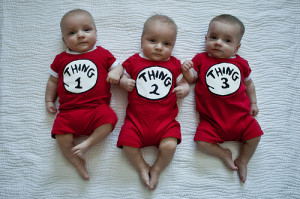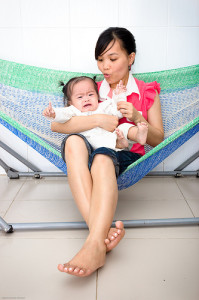The ABCs of RSV.
This is a compensated campaign in collaboration with MedImmune and Latina Bloggers Connect

Did I ever tell you that I have about fifteen nieces and nephews!! Yes, fifteen!! I remember the excitement we all had as a family every time a new member of the family was born, and how beautiful but fragile they seemed. I’m not a mom, but I’m very well versed on common things that affect infants like SIDS, eczema and ear infections. But, it wasn’t until a few years ago that I learned about Respiratory Syncytial Virus (RSV).
RSV is a common, seasonal virus contracted by nearly 100 percent of babies by their second birthday. Although RSV is extremely common, many parents are unaware of the dangers that RSV presents to their children. In fact, two-thirds of Hispanic mothers have never heard of RSV, and one in five Hispanic moms only becomes aware of RSV once their child has contracted the virus.
The virus often develops into a mild respiratory infection (scary) but in preemies it can develop into something much more serious due to their underdeveloped lungs and immature immune systems. Three of my nieces were born premature, and I learned that about one in eight Hispanic babies is born prematurely and that this high rate is a reason for the increased risk of RSV within our community. Throw in more people around the child, like family members, your extended family and caregivers, and you’ve unknowingly created more opportunity to spread RSV to your baby.

I’ve been around my nieces and nephews when they’ve been sick, and talk about feeling helpless. You just want to comfort them and will probably do just about anything to make them feel better. Here are the easy ABCs of RSV to keep your family healthy during RSV season.
A is for Awareness:
- RSV occurs in epidemics each year, typically from November through March, though it can vary by geography and year-to-year.
- RSV disease is the leading cause of hospitalizations for babies during their first year of life in the United States, with approximately, 125,000 hospitalizations and up to 400 infant deaths each year.
- RSV disease is responsible for one of every 13 pediatrician visits and one of every 38 trips to the ER in children under the age of five.
- Despite being so common, many parents aren’t aware of RSV; in fact, one-third of mothers (and two-thirds of Hispanic mothers) have never heard of the virus.
B is for Babies:
- Premature babies – defined as those born under 37 weeks gestation – are most at risk for developing severe RSV disease because they have underdeveloped lungs and fewer antibodies to fight the virus than babies born full term.
- Amongst Hispanics, the preterm birth rate has grown six percent over the last decade.
C is for Contagious:
RSV is very contagious and can be spread easily through touching, sneezing and coughing. Additionally, the virus can live on the skin and surface s for hours. Learn the symptoms of severe RSV disease and contact your child’s pediatrician immediately if your child exhibits one or more of the following:
- Persistent coughing or wheezing
- Bluish color around the mouth or fingernails
- Rapid, difficult, or gasping breaths
- Fever (especially if it is over 100.4 degrees F (rectal) in infants under 3 months of age).
There is no treatment once you have RSV, so like many things — prevention is key! If you’re a mom, or an aunt like me and have more questions, don’t hesitate to contact a pediatrician.
Although 1 in 3 Hispanic moms make a decision to avoid or postpone getting treatment because of costs, with a little effort you will fins that most cities have great programs that will give your child healthcare at little to no cost. Here are other things we all can do to help prevent the spread of RSV:
- Washing their hands and ask others to do the same
- Keeping toys, clothes, blanket and sheets clean
- Avoiding crowds and other young children during RSV season
- Never letting anyone smoke around your baby
- Steering clear of people who are sick or who have recently been sick
Sharing is caring, so please be sure to let your friends, neighbors and even other aunts (like me) know about RSV!
Have a wonderful day!
xoxo Helen
